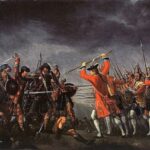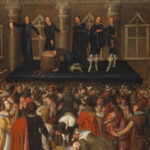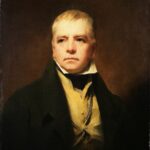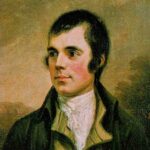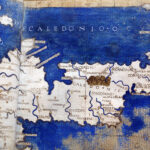The Literary Leaders of Scotland: From Ancient Bards to Modern Masters
Scotland’s literary history is as rich and rugged as the land itself—a legacy shaped by the voices of bards, poets, playwrights, and novelists whose works have defined Scotland’s cultural identity and left an indelible mark on global literature. From the ancient oral traditions of Celtic bards to the refined poetry of Robert Burns and the epic historical fiction of Sir Walter Scott, Scottish literary leaders have woven the complex threads of national identity, political struggle, and cultural resilience into a tapestry of unparalleled depth and richness. The rise of Scottish literature was not a straightforward progression—it was shaped by political turmoil, religious transformation, and social upheaval. Yet, through war, exile, and repression, Scotland’s literary tradition endured and evolved, producing some of the most influential writers in the English-speaking world.
Historian Andrew Hook noted that “Scottish literature has always been deeply connected to the political and social conditions of its time—shaped by conflict and resolution, rebellion and reconciliation” (Hook, 1991). The literary achievements of Scotland’s greatest writers reflect not only artistic genius but also the enduring struggle to define and preserve a distinctive national identity. Through poetry, prose, and drama, Scotland’s literary leaders have spoken to the soul of a nation—a voice that remains powerful and relevant to this day.
The Early Literary Tradition (6th–15th Century): Bards and Chronicles
Scotland’s earliest literary tradition was oral rather than written. The Celtic tribes of early Scotland preserved their history and mythology through the work of bards—poets and storytellers who played a central role in the social and political life of their communities. These early bards composed heroic poems and songs that celebrated clan ancestry, military victories, and the deeds of kings and chieftains.
Aneirin (6th Century)
One of the earliest known Scottish bards was Aneirin, who composed the epic poem Y Gododdin around 600 CE. Written in the early Welsh language, Y Gododdin recounts the doomed battle of the Gododdin warriors against the Anglo-Saxon kingdom of Northumbria. Aneirin’s work reflects the harsh realities of early medieval warfare and the emerging sense of tribal identity among the Celtic peoples of Scotland. Historian Thomas Owen Clancy notes that “Aneirin’s work is not only an early literary achievement—it is a document of national memory, preserving the warrior ethos of early Scotland” (Clancy, 1999).
Blind Harry (1440–1492)
The transition from oral to written literature began in the late medieval period with the rise of Scottish chroniclers and historical poets. The most famous of these was Blind Harry, whose epic poem The Wallace (c. 1477) recounted the life and exploits of William Wallace, the hero of the Wars of Scottish Independence. Written in Scots, The Wallace became a cornerstone of Scottish nationalist literature, inspiring later generations of writers and freedom fighters.
Blind Harry’s work was based on oral traditions and historical records, but it blended fact and legend in a way that elevated Wallace to the status of a mythic hero. Historian Andrew Fisher notes that “Blind Harry’s Wallace was not merely a historical figure—he became the embodiment of Scottish resistance and independence” (Fisher, 1986).
The Scottish Renaissance and the Rise of Modern Literature (16th–17th Century)
The 16th and 17th centuries saw the emergence of a more sophisticated literary culture in Scotland, influenced by the spread of the Reformation, the rise of printing, and increased contact with continental Europe. This period produced some of Scotland’s earliest modern poets and playwrights.
Sir David Lindsay (1490–1555)
Lindsay was a court poet and playwright whose satirical works targeted the corruption of the Catholic Church and the moral failures of Scotland’s political elite. His most famous work, Ane Satyre of the Thrie Estaitis (1552), is considered the earliest surviving full-length Scottish play. The play reflects the influence of the Scottish Reformation, blending religious and political commentary with sharp humor and theatrical spectacle.
Lindsay’s work was groundbreaking not only for its social critique but also for its use of the Scots language as a medium for sophisticated literary expression. Historian David McCrone notes that “Lindsay’s work marks the transition from medieval to modern Scottish literature—a voice of reform and rebellion that anticipated the upheavals of the Reformation” (McCrone, 2001).
The Age of Enlightenment and Romanticism (18th–19th Century): The Birth of Scottish National Literature
The Scottish Enlightenment of the 18th century was not only a scientific and philosophical movement—it also produced a literary flowering that reshaped Scottish cultural identity. The Romantic period that followed saw Scottish writers explore themes of history, nationalism, and individual identity in poetry and prose.
Robert Burns (1759–1796): The National Bard
No figure looms larger in Scottish literary history than Robert Burns. Born in Ayrshire to a poor farming family, Burns rose to fame with the publication of Poems, Chiefly in the Scottish Dialect (1786). Burns wrote in both Scots and English, blending folk traditions with sophisticated poetic forms.
Burns’s work celebrated the lives of ordinary Scots, elevating themes of love, nature, and political justice. Poems such as Auld Lang Syne and Scots Wha Hae became anthems of Scottish identity. Historian Robert Crawford argues that “Burns was not only a poet—he was a symbol of democratic ideals and Scottish cultural independence” (Crawford, 2009).
Sir Walter Scott (1771–1832): The Father of the Historical Novel
Scott’s influence on world literature is difficult to overstate. His novels, including Waverley (1814), Ivanhoe (1819), and Rob Roy (1817), created the genre of the historical novel. Scott’s work blended historical events with fictional characters, elevating Scotland’s turbulent history to the level of epic literature.
Scott’s novels revived interest in Scotland’s medieval and Jacobite past, contributing to a broader cultural renaissance in Scottish art and music. However, Scott’s romanticized vision of Scotland also reinforced Highland stereotypes and the notion of Scotland as a “noble but tragic” nation.
Modern Scottish Literature (20th–21st Century): The Voice of a Nation
The 20th century saw a resurgence of Scottish literature, fueled by political change, devolution, and a renewed sense of national identity.
Hugh MacDiarmid (1892–1978): The Scottish Renaissance
MacDiarmid was the driving force behind the Scottish literary renaissance of the early 20th century. His use of “Lallans” (Lowland Scots) in poetry such as A Drunk Man Looks at the Thistle (1926) revived the Scottish literary tradition. MacDiarmid’s work reflected political nationalism, cultural pride, and intellectual ambition.
Muriel Spark (1918–2006)
Spark’s novel The Prime of Miss Jean Brodie (1961) remains one of the defining works of 20th-century Scottish fiction. Spark explored themes of individual freedom and moral ambiguity, reflecting the broader existential anxieties of postwar Scotland.
Irvine Welsh (1958–): The Voice of Modern Scotland
Welsh’s novel Trainspotting (1993) brought the working-class experience of post-industrial Scotland to global attention. Written in raw Scots dialect, Welsh’s work explores themes of addiction, poverty, and alienation in contemporary Scotland.
Legacy and Conclusion
Scotland’s literary legacy is one of resilience and reinvention. From the ancient bards to modern novelists, Scottish writers have used the power of language to define, challenge, and celebrate national identity. As historian Andrew Hook writes, “Scottish literature is not merely a record of the nation’s past—it is a living tradition that reflects the ongoing struggle to define what it means to be Scottish” (Hook, 1991). The voices of Burns, Scott, and MacDiarmid continue to resonate, ensuring that Scotland’s literary legacy endures as a defining element of global culture.
References
- Hook, Andrew. (1991). The History of Scottish Literature. Aberdeen University Press.
- Crawford, Robert. (2009). The Bard: Robert Burns, A Biography. Princeton University Press.
- Clancy, Thomas Owen. (1999). Early Medieval Scottish Poetry. Edinburgh University Press.
- McCrone, David. (2001). Understanding Scotland: The Sociology of a Nation. Routledge.
O

